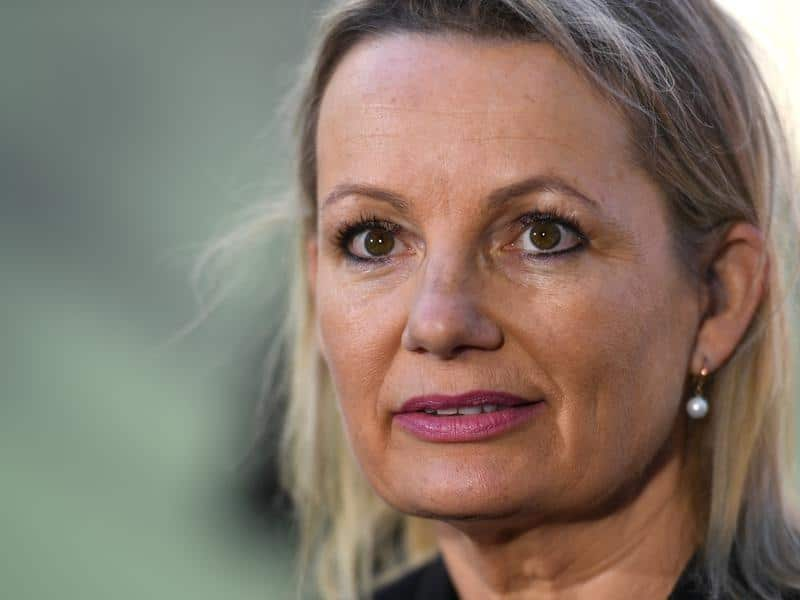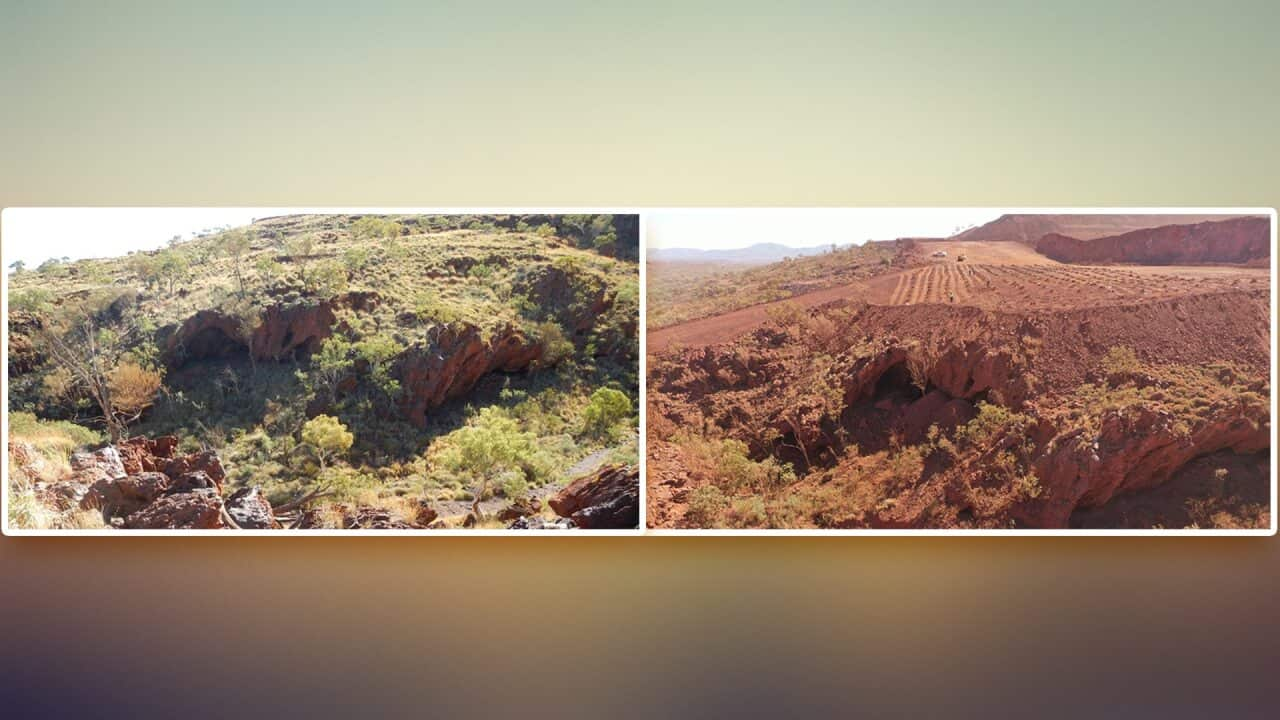Mining giant Rio Tinto has backed calls for Western Australia’s Aboriginal Heritage Act to be changed and blamed a misunderstanding for the destruction of ancient Indigenous caves dating back 46,000 years in the state's north.
Indigenous groups have long been calling for changes to Section 18 of the Act, which allows companies to destroy Indigenous sacred sites if they receive ministerial approval.
Using that provision, Rio Tinto detonated explosives in two Indigenous caves in the Juukun Gorge in order to expand their mine, causing great distress to the Puutu Kunti Kurrama and Pinikura People (PKKP). Rio Tinto iron ore chief executive Chris Salisbury has apologised to the traditional owners and said he wants to repair the company's relationship with them, but refused to say whether reparations were being considered.
Rio Tinto iron ore chief executive Chris Salisbury has apologised to the traditional owners and said he wants to repair the company's relationship with them, but refused to say whether reparations were being considered.

The blasting of an ancient Aboriginal site complied with the law. Source: Twitter
"Regrettably, we thought we had a shared understanding with the PKKP people about this site," told ABC radio on Friday.
"Something's gone terribly wrong here and we've committed to a comprehensive review of all of our heritage processes, and moreover, committed to advocating for legislative change."
Lawyers for the PKKP said they were advised to contact federal Environment Minister Sussan Ley, who could have intervened and stopped the mining from proceeding.
PKKP director Burchell Hayes said they followed that advice but did not receive a response from Ms Ley, who has denied she ever received the request.
West Australian Indigenous groups told SBS News many Aboriginal communities are used to not receiving a response when they attempt to make appeals under the current system. CEO of Yamatji Marlpa Aboriginal Corporation, Simon Hawkins, welcomed Rio Tinto's statement of support for legislative change.
CEO of Yamatji Marlpa Aboriginal Corporation, Simon Hawkins, welcomed Rio Tinto's statement of support for legislative change.

Environment Minister Sussan Ley says she never received an appeal Source: AAP
He said for too long Indigenous people have not been able to appeal government decisions once they are approved under Section 18, even if new information is discovered.
“Cultural sites are part of being Aboriginal, so if you lose a cultural site or it is destroyed or taken away, it is kind of like a part of you has been removed,” Mr Hawkins said.
He believes the proposed reforms may bring about a more balanced approach to mining in Western Australia as he said for too long “mining interests have overridden a lot of other interests”. “Aboriginal people do recognise that there has to be a balance in the process, that some cultural sites aren’t as significant as others, but at the moment it appears to be very one-sided towards development,” he said.
“Aboriginal people do recognise that there has to be a balance in the process, that some cultural sites aren’t as significant as others, but at the moment it appears to be very one-sided towards development,” he said.

The bronze commemorative statue of Kalgoorlie's most famous prospector, Patrick "Paddy Hannan", on the WA mining town's main street Source: AAP
Over the past 10 years, there have been 463 applications under Section 18 to impact West Australian Aboriginal heritage sites on mining leases, none of which have been rejected.
South West Aboriginal Land and Sea Council spokesperson Wayne Nannup isn’t convinced the government will put Indigenous requests before financial gain.
The group's request to stop the expansion of Perth Airport onto the sacred Munday Swamp was rejected in December last year. “It is clear that both the Commonwealth and WA Aboriginal heritage protection legislation cannot work to protect sites of significance, like Munday Swamp, when ministers ignore expert advice and the views of Aboriginal people,” Mr Nannup said.
“It is clear that both the Commonwealth and WA Aboriginal heritage protection legislation cannot work to protect sites of significance, like Munday Swamp, when ministers ignore expert advice and the views of Aboriginal people,” Mr Nannup said.

Aboriginal Affairs Minister Ben Wyatt, SWALSC CEO Wayne Nannup and Consultant David Collard at the grant presentation in Kings Park, Perth. Source: NITV
West Australian Premier Mark McGowan has said his government will ensure such destruction doesn’t occur again.
Federal Greens leader Adam Bandt has called for Mr Salisbury to be fired or resign.
“Rio can’t just wash its hands and move on,” he wrote.
“They can’t walk away from this. Responsibility rests at the top.”
Additional reporting by AAP.










